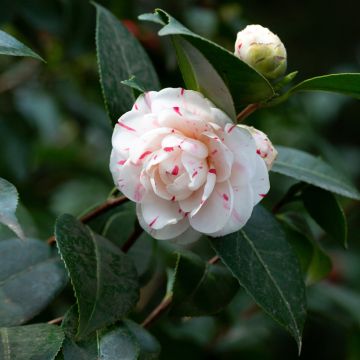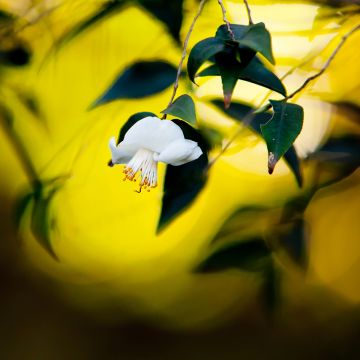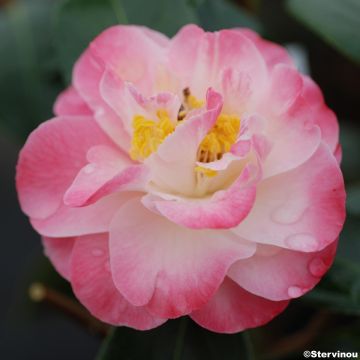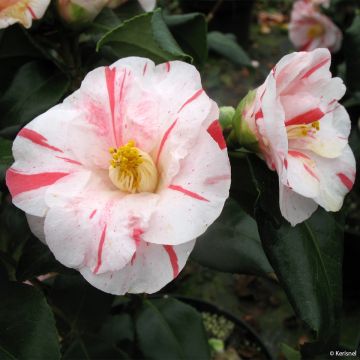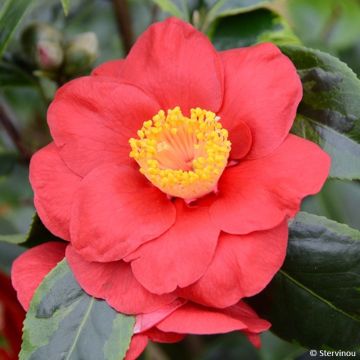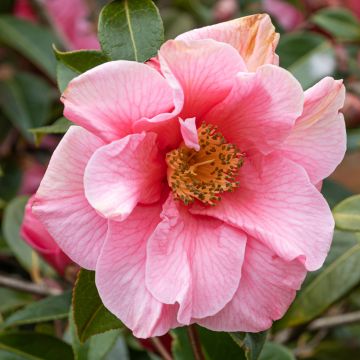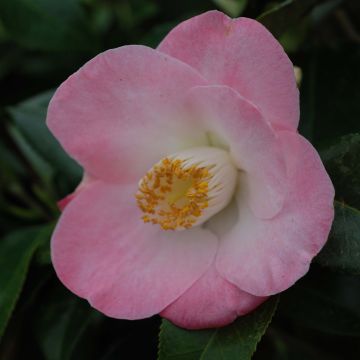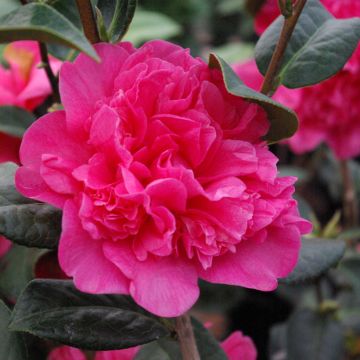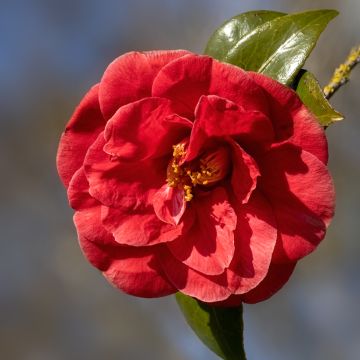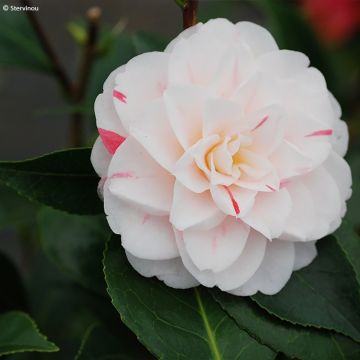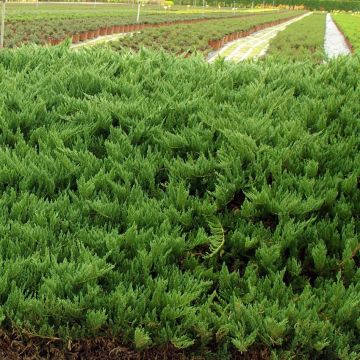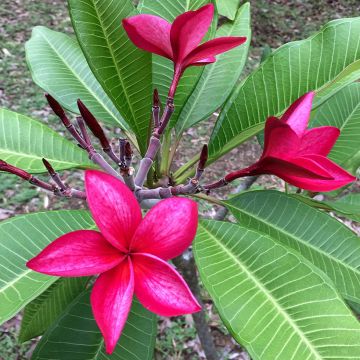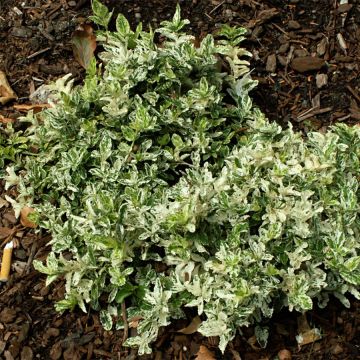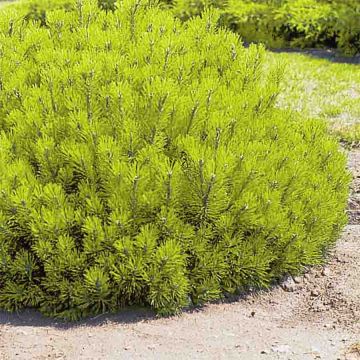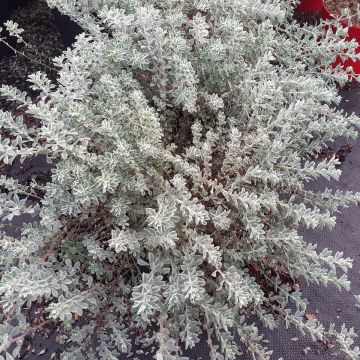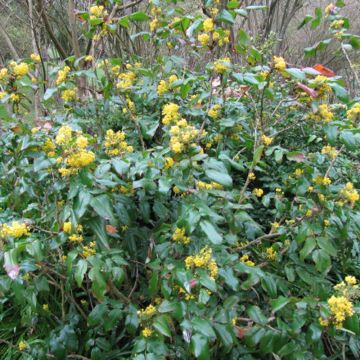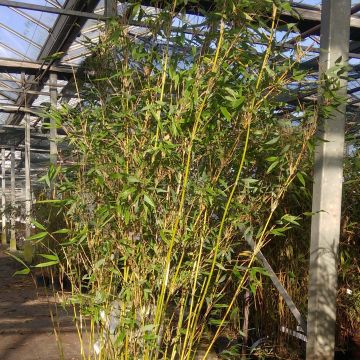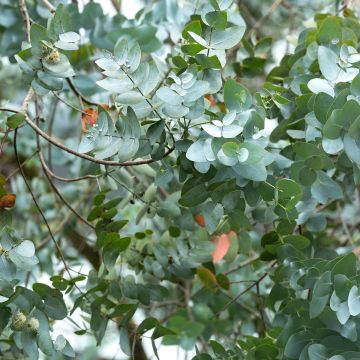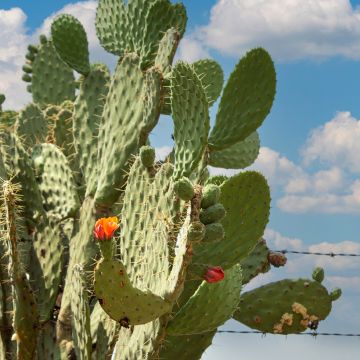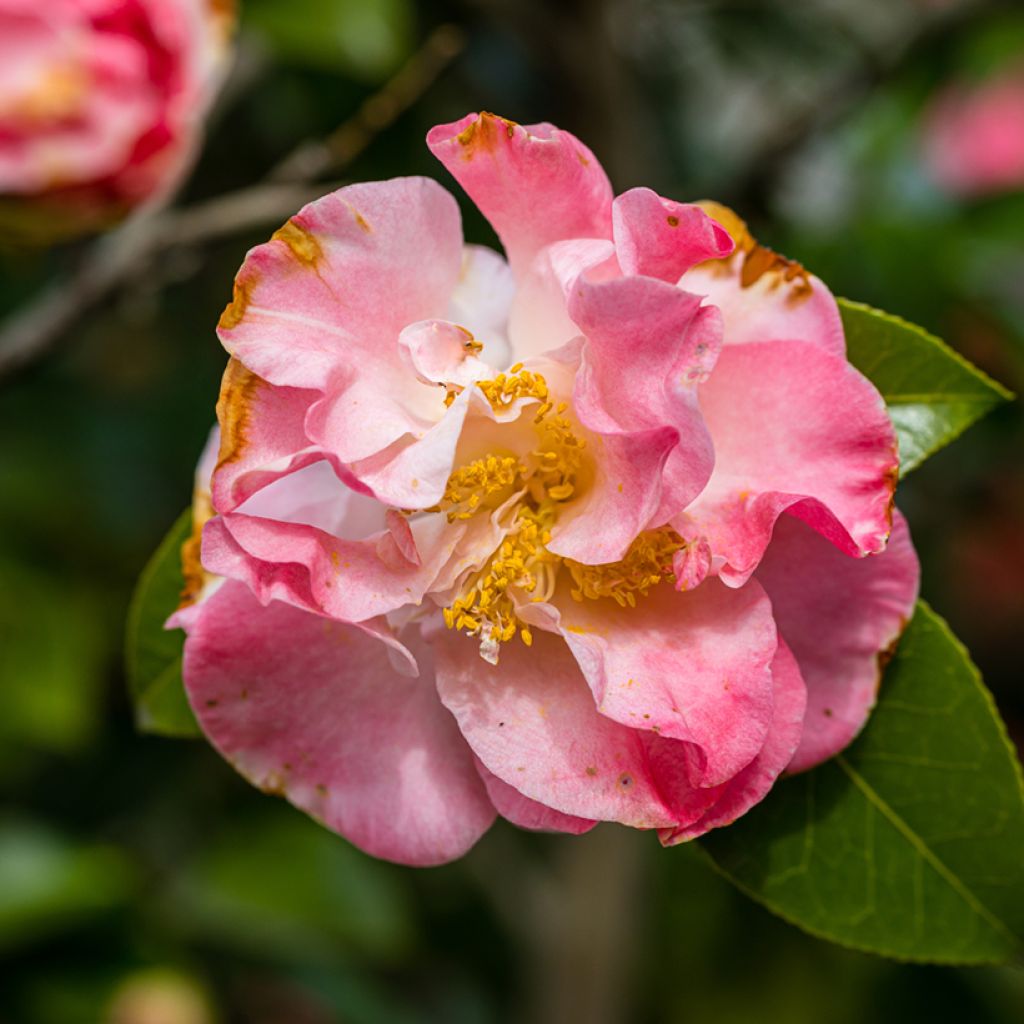

Camellia Bettys Beauty
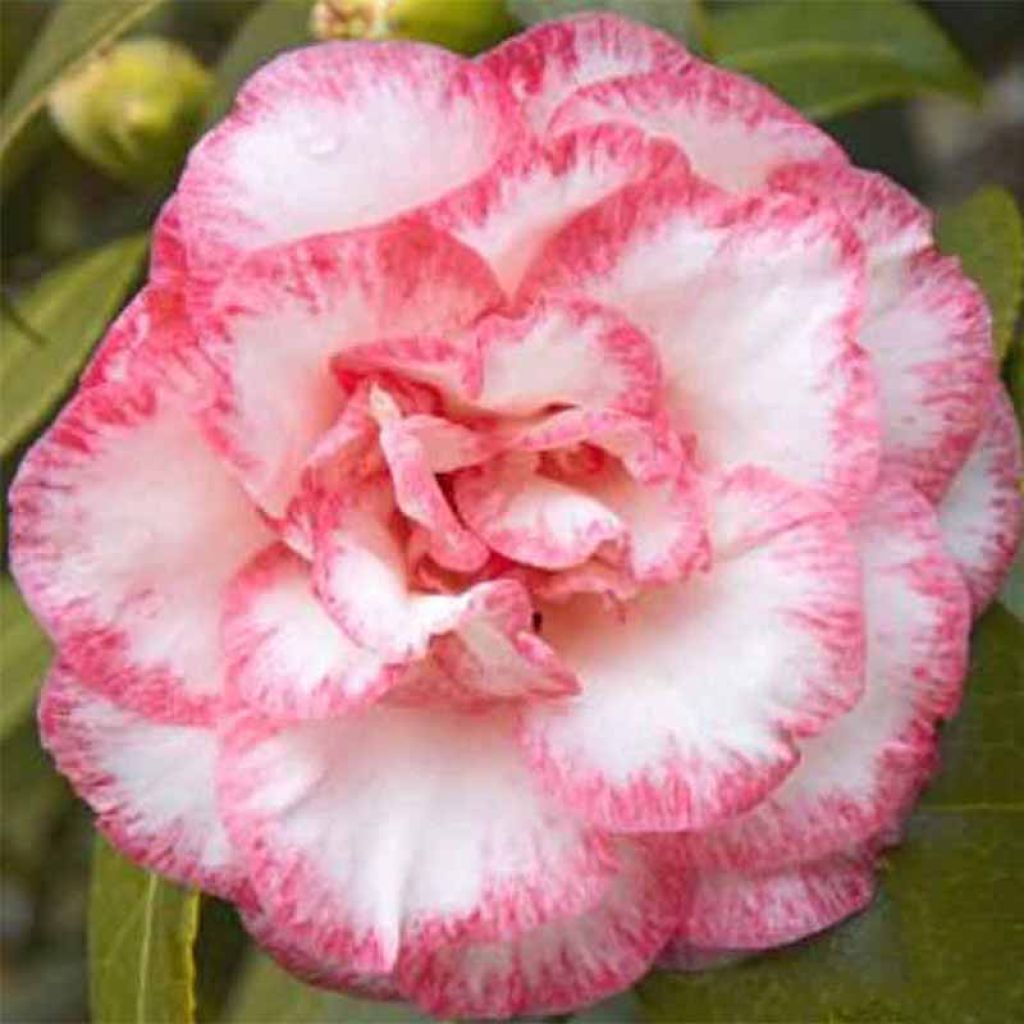

Camellia Bettys Beauty
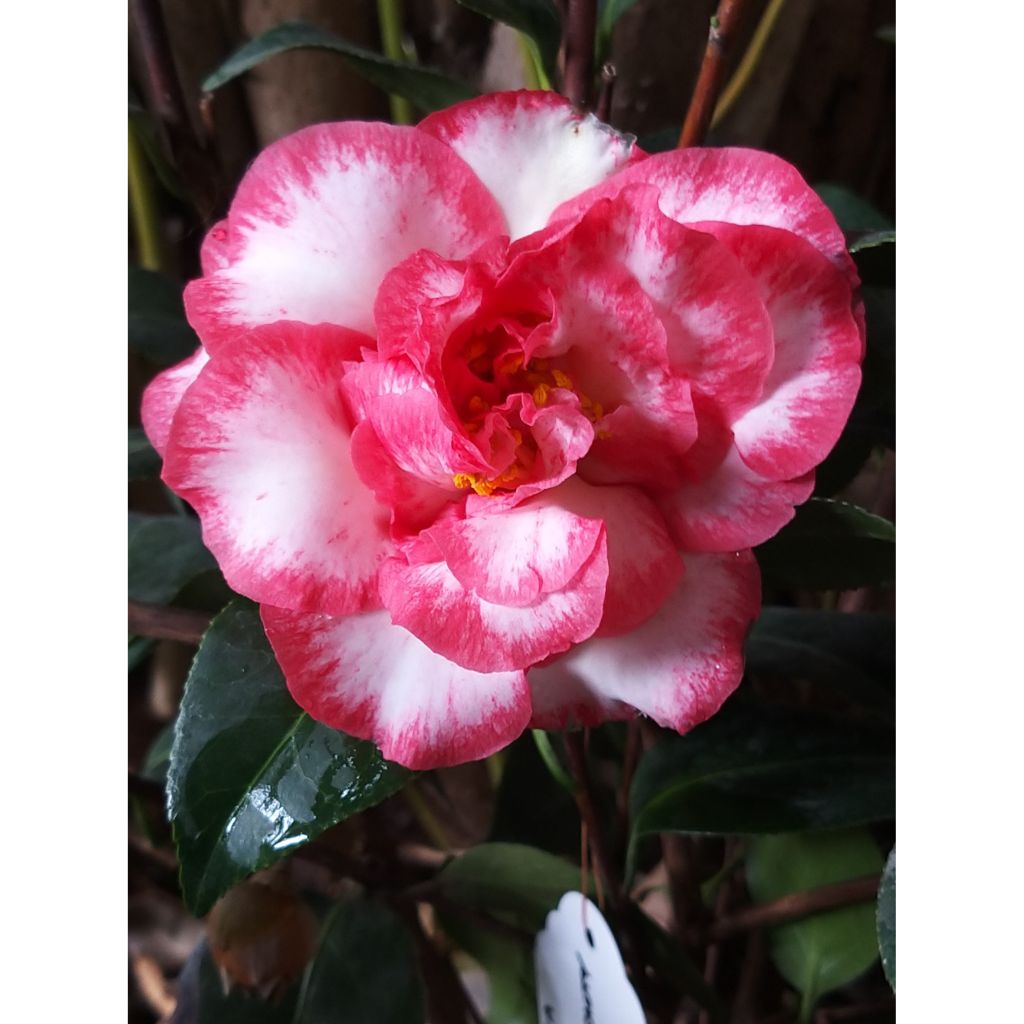

Camellia Bettys Beauty
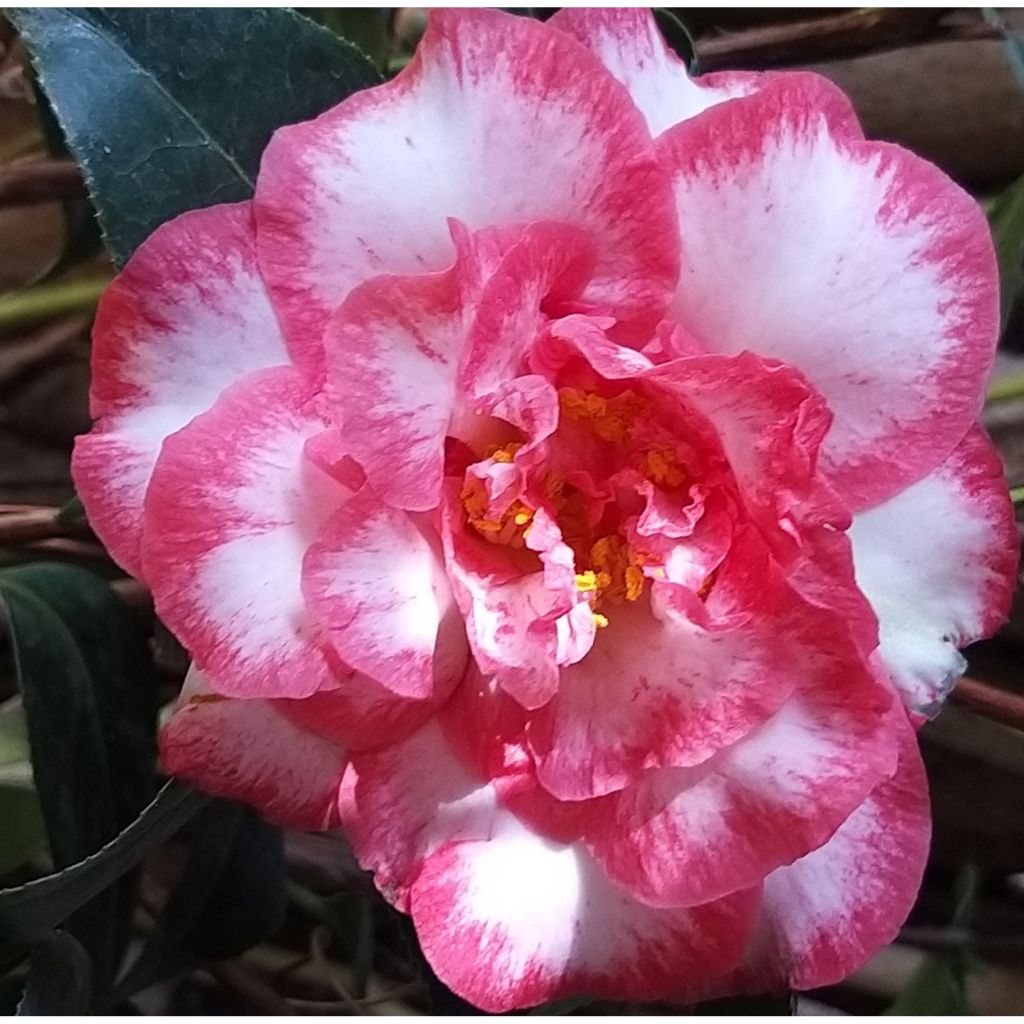

Camellia Bettys Beauty
Camellia Bettys Beauty
Camellia Betty's Beauty
Japanese Camellia, Rose of winter
This item cannot be shipped to the selected country
Delivery charge from €5.90
More information
Schedule delivery date,
and select date in basket
This plant carries a 24 months recovery warranty
More information
We guarantee the quality of our plants for a full growing cycle, and will replace at our expense any plant that fails to recover under normal climatic and planting conditions.
From €5.90 for pickup delivery and €6.90 for home delivery
Express home delivery from €8.90.

Does this plant fit my garden?
Set up your Plantfit profile →
Description
Evergreen shrub with a bushy habit, Betty's Beauty is a Camellia variety with white petals edged in pink and shiny dark green leaves.
Camellia Betty's Beauty is a particularly remarkable bush, of medium size: it will reach approximately 1.20 m (4 ft) in height and 1 m (3 ft) in width, and it has peony-like flowers with a diameter of 10 cm, semi-double, white edged in pink, with a bouquet of yellow stamens in the centre. It flowers generously and quite early, from February to April. Its dark green leaves are oval-shaped, measuring from 5 to 8 cm (2 to 3 in) in length, and are evergreen.
Hardy down to -15°C, Camellia Betty's Beauty likes a light, humus-rich soil, preferably acidic as it is an acid-loving plant. Pure ericaceous soil is not recommended, but adding leaf compost is greatly appreciated. Avoid poorly drained areas. Limestone is the main enemy of camellias. In humid and mild climates they can tolerate all exposures, but in dry and very sunny climates it is best to plant them in partial shade or shade. Camellias appreciate a site sheltered from strong winds and spring frosts. Planting at the base of a wall or fence generally yields good results.
To keep it company, you can plant it in a bed with other ericaceous plants such as rhododendrons and azaleas, hydrangeas, viburnums. Or it can stand alone on a short grass meadow, in a pot on a terrace, or in the shade of tall trees.
The name Camellia was given to the plant in 1735 by the Swedish naturalist Carl Linnaeus, in tribute to Georg Josef Kamel (Latinized as "Camellus"), an apothecary in the service of the Jesuits in the Philippines in the late 17th century.
Camellia Betty's Beauty originates from the USA in 1976, selected by F. Moore from West Covina, California.
Report an error about the product description
Camellia Bettys Beauty in pictures
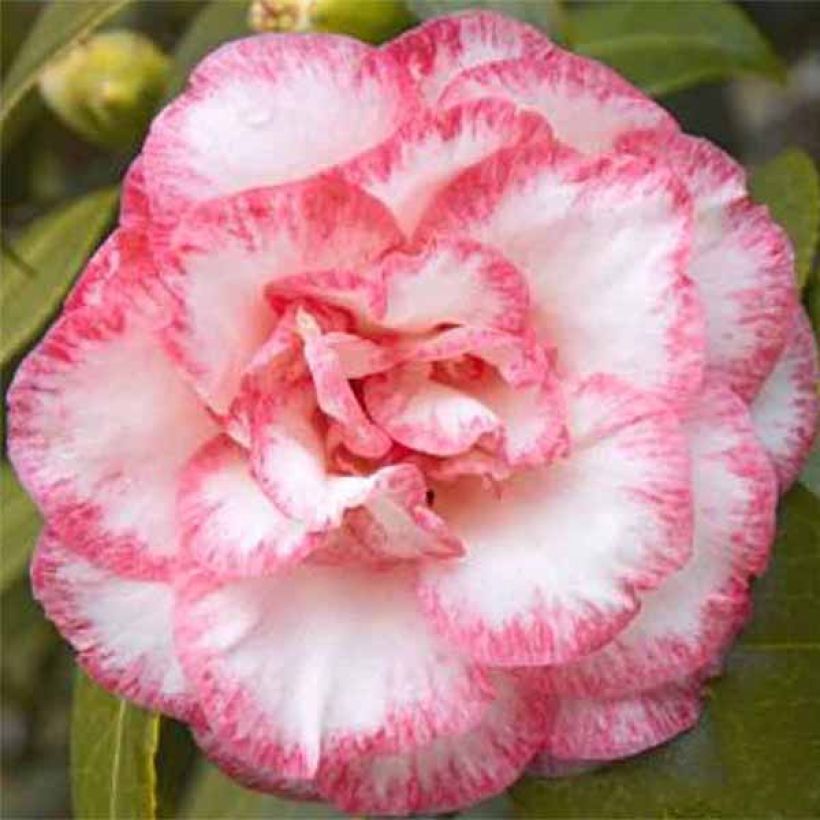

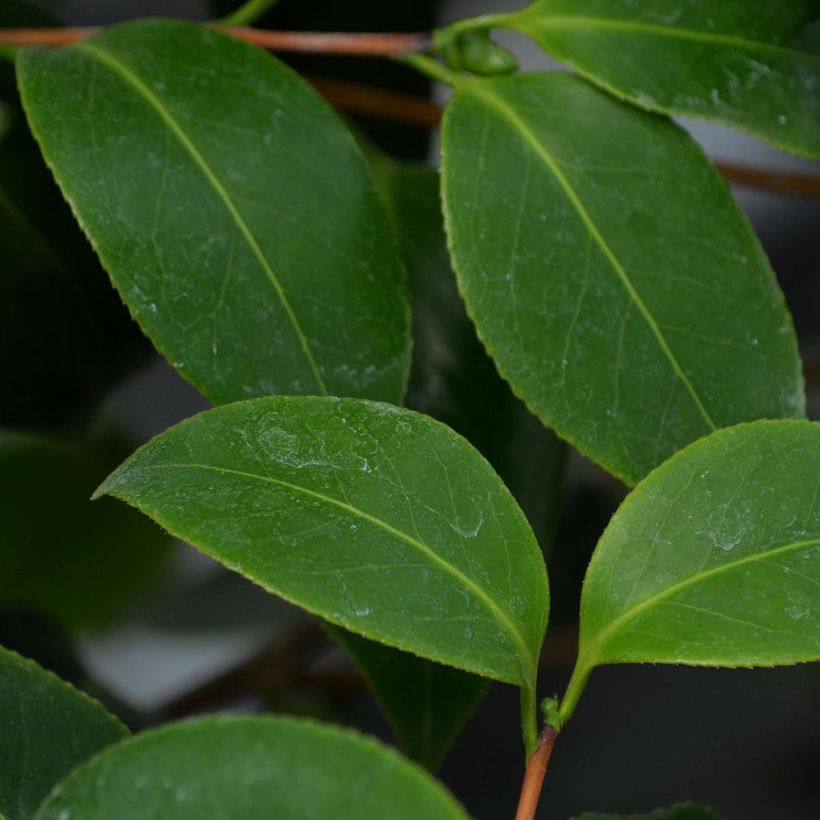

Plant habit
Flowering
Foliage
Botanical data
Camellia
Betty's Beauty
Theaceae
Japanese Camellia, Rose of winter
Cultivar or hybrid
Other Traditional Camellia
Planting and care
Camellia Betty's Beauty can be placed in a fairly shady spot, sheltered from cold and drying winds. You can grow it in full sun, if the roots remain cool. Plant it in a cool, humus-rich, acidic and well-drained soil. Do not plant the bush too deeply; the top of the root ball should be covered with 3 cm (1.2 in) of soil. In winter cover with a 5 to 7 cm (2 to 3 in) thick mulch composed of leaf compost and crushed bark. Beware of late frosts that can damage flowers and buds. During dry periods, water the bush to prevent the dropping of flower buds. It is recommended to plant camellias in autumn to promote good root development and better flowering during the first year. Possible diseases include chlorosis caused by excessive limestone, brown spots caused by sunburn on leaves exposed to full south, sooty mould, scale insects, and vine weevils.
Planting period
Intended location
Care
-
, onOrder confirmed
Reply from on Promesse de fleurs
Evergreen shrubs
Haven't found what you were looking for?
Hardiness is the lowest winter temperature a plant can endure without suffering serious damage or even dying. However, hardiness is affected by location (a sheltered area, such as a patio), protection (winter cover) and soil type (hardiness is improved by well-drained soil).

Photo Sharing Terms & Conditions
In order to encourage gardeners to interact and share their experiences, Promesse de fleurs offers various media enabling content to be uploaded onto its Site - in particular via the ‘Photo sharing’ module.
The User agrees to refrain from:
- Posting any content that is illegal, prejudicial, insulting, racist, inciteful to hatred, revisionist, contrary to public decency, that infringes on privacy or on the privacy rights of third parties, in particular the publicity rights of persons and goods, intellectual property rights, or the right to privacy.
- Submitting content on behalf of a third party;
- Impersonate the identity of a third party and/or publish any personal information about a third party;
In general, the User undertakes to refrain from any unethical behaviour.
All Content (in particular text, comments, files, images, photos, videos, creative works, etc.), which may be subject to property or intellectual property rights, image or other private rights, shall remain the property of the User, subject to the limited rights granted by the terms of the licence granted by Promesse de fleurs as stated below. Users are at liberty to publish or not to publish such Content on the Site, notably via the ‘Photo Sharing’ facility, and accept that this Content shall be made public and freely accessible, notably on the Internet.
Users further acknowledge, undertake to have ,and guarantee that they hold all necessary rights and permissions to publish such material on the Site, in particular with regard to the legislation in force pertaining to any privacy, property, intellectual property, image, or contractual rights, or rights of any other nature. By publishing such Content on the Site, Users acknowledge accepting full liability as publishers of the Content within the meaning of the law, and grant Promesse de fleurs, free of charge, an inclusive, worldwide licence for the said Content for the entire duration of its publication, including all reproduction, representation, up/downloading, displaying, performing, transmission, and storage rights.
Users also grant permission for their name to be linked to the Content and accept that this link may not always be made available.
By engaging in posting material, Users consent to their Content becoming automatically accessible on the Internet, in particular on other sites and/or blogs and/or web pages of the Promesse de fleurs site, including in particular social pages and the Promesse de fleurs catalogue.
Users may secure the removal of entrusted content free of charge by issuing a simple request via our contact form.
The flowering period indicated on our website applies to countries and regions located in USDA zone 8 (France, the United Kingdom, Ireland, the Netherlands, etc.)
It will vary according to where you live:
- In zones 9 to 10 (Italy, Spain, Greece, etc.), flowering will occur about 2 to 4 weeks earlier.
- In zones 6 to 7 (Germany, Poland, Slovenia, and lower mountainous regions), flowering will be delayed by 2 to 3 weeks.
- In zone 5 (Central Europe, Scandinavia), blooming will be delayed by 3 to 5 weeks.
In temperate climates, pruning of spring-flowering shrubs (forsythia, spireas, etc.) should be done just after flowering.
Pruning of summer-flowering shrubs (Indian Lilac, Perovskia, etc.) can be done in winter or spring.
In cold regions as well as with frost-sensitive plants, avoid pruning too early when severe frosts may still occur.
The planting period indicated on our website applies to countries and regions located in USDA zone 8 (France, United Kingdom, Ireland, Netherlands).
It will vary according to where you live:
- In Mediterranean zones (Marseille, Madrid, Milan, etc.), autumn and winter are the best planting periods.
- In continental zones (Strasbourg, Munich, Vienna, etc.), delay planting by 2 to 3 weeks in spring and bring it forward by 2 to 4 weeks in autumn.
- In mountainous regions (the Alps, Pyrenees, Carpathians, etc.), it is best to plant in late spring (May-June) or late summer (August-September).
The harvesting period indicated on our website applies to countries and regions in USDA zone 8 (France, England, Ireland, the Netherlands).
In colder areas (Scandinavia, Poland, Austria...) fruit and vegetable harvests are likely to be delayed by 3-4 weeks.
In warmer areas (Italy, Spain, Greece, etc.), harvesting will probably take place earlier, depending on weather conditions.
The sowing periods indicated on our website apply to countries and regions within USDA Zone 8 (France, UK, Ireland, Netherlands).
In colder areas (Scandinavia, Poland, Austria...), delay any outdoor sowing by 3-4 weeks, or sow under glass.
In warmer climes (Italy, Spain, Greece, etc.), bring outdoor sowing forward by a few weeks.

































